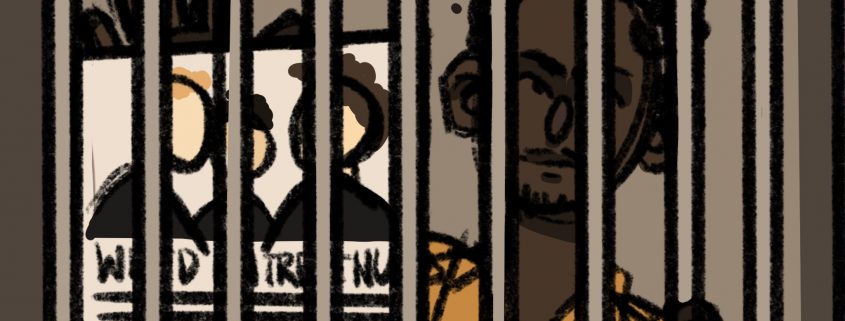To Be Blunt: The Green Boom disproportionately benefits white CEOs

Cannabis is a budding industry (pun intended!). Weed has undoubtedly boosted economies by creating jobs and increasing financial opportunities in states where marijuana is legal. But as with all competitive and lucrative businesses, cannabis comes at a high price.
In my last column, I talked about how the root of marijuana’s inequity stems from racist propaganda campaigns dating back to the 1920s. Fast-forward to the present day and weed is still entrenched in racial politics, conversations about gentrification, over-policing and poverty. As cannabis intertwines with capitalism, the world of weed will likely remain unequal.
According to the American Civil Liberties Union, even though cannabis consumption is equally popular among all Americans regardless of race, police have continued to disproportionately target and incarcerate people of color. An ACLU study found that Black people were 3.73 times more likely to be arrested for marijuana than white people nationwide in 2010. In states with larger discrepancies, such as Washington, D.C., that number rises to 10.
Now, cannabis companies and corporations continue this discriminatory trend, mimicking societal racial inequities and perpetuating wealth gaps. According to The Globe and Mail, in 2017, 81% percent of American cannabis companies were owned by white people, the majority of whom were men. The few women rising up the ranks of the weed industry were also white.
“The top tier of the legal pot industry is run almost exclusively by white men, and retailers, dispensaries and pharmacies nationwide are expected to take in nearly $45 billion in revenue in 2024 from all cannabinoid sales,” wrote Eileen Rivers in an article from USA Today.
When recreational legalization measures were first passed, it was difficult for past marijuana offenders to obtain funding and permits for their business ventures. Doors opened for those already in the medical marijuana business, and loans were reserved for those without past convictions. As a result, wealthy, white CEOs and politicians flooded the market, like former House Speaker John Boehner, who supported the War on Drugs and just last year joined the board of a cannabis company.
It’s a story we know far too well — white people profiting off of what people of color go to jail for.
Cannabis was first introduced to American mainstream culture by communities of color who used the plant for creative, medicinal and recreational purposes. It was particularly influential for artists in the Jazz Age. As weed enters its second golden age, appropriation and gentrification of the drug threaten to continue and amplify the disenfranchisement of entire people groups — especially those already affected by classism and racism.
While hundreds of thousands of Black people are still serving life sentences for low-level marijuana offenses, white entrepreneurs are given the opportunity to benefit from the expanding market. And as white business owners are lauded for their seemingly pioneering efforts, making millions in profit, people of color remain incarcerated, even though they were selling small amounts of weed solely to support their families. Ah, the hypocrisy of it all.
And while change has been made, such as through last year’s federal First Step Act — which seeks to curb mandatory minimum sentencing and lessen drug sentences — there is still a long way to go. Only a handful of states have allowed low-level offenders to expunge, or clear, their marijuana records. Even fewer states have granted equity and licensing programs, which provide loans and other assistance, to former drug dealers entering the legal market.
A complex interplay of racism and anti-poverty sentiment continues to shape weed culture. And as we dismantle the power structures surrounding weed through decriminalization, we must also reopen doors that have been previously closed to communities of color.
To be blunt, weed was never just about weed. It has always been about politics, culture, race, class and the unequal systems which govern all of these. Once cannabis entered mainstream consciousness, it was immediately politicized and radicalized, and its negative perceptions were effectively tied to brown and Black communities.
White entrepreneurs have a moral responsibility to use their power, wealth and privilege to call for change and lobby Congress for the federal expungement of records.
And as consumers, we should support local weed shops that give back to the community.
Natalie Oganesyan is a sophomore writing about weed culture and politics. She is also the Arts & Entertainment Editor at the Daily Trojan Her column, “To be Blunt,” runs every other Thursday.

